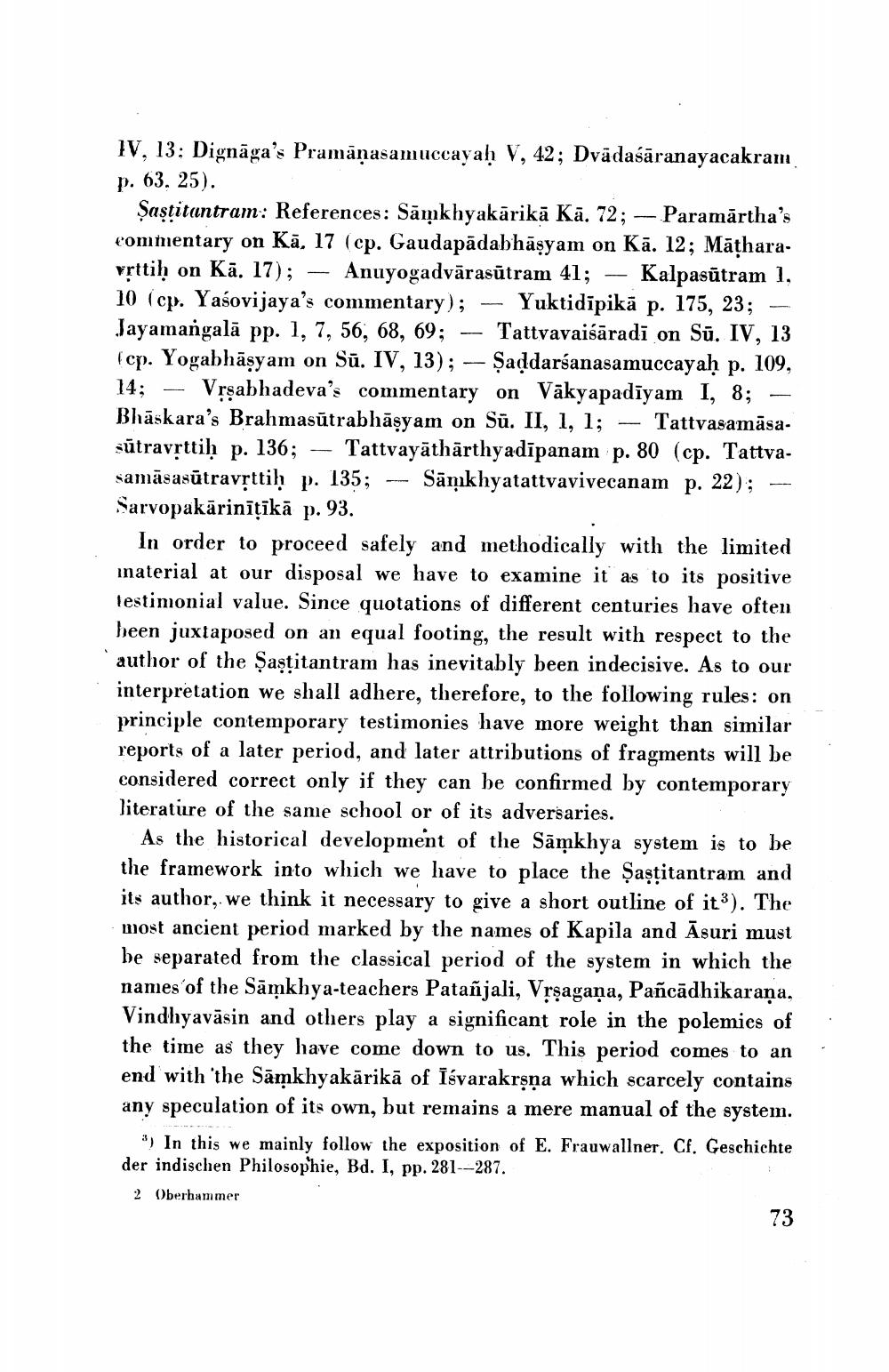________________
IV, 13: Dignāga's Pramāṇasamuccayah V, 42; Dvādaśāranayacakram. p. 63. 25).
Şastitantram: References: Sāņkhyakārikā Kā. 72; -- Paramārtha's commentary on Kā. 17 (cp. Gaudapādabhāsyam on Kā. 12; Māțharavrttih on Kā. 17); – Anuyogadvārasūtram 41; – Kalpasūtram 1, 10 (cp. Yasovijaya's commentary); – Yuktidīpikā p. 175, 23; – Jayamangalā pp. 1, 7, 56, 68, 69; - Tattvavaiśāradi on Sū. IV, 13 (cp. Yogabhāsyam on Sū. IV, 13); -- Saddarśanasamuccayah p. 109, 14; – Vrsabhadeva's commentary on Vākyapadīyam I, 8; - Bhāskara’s Brahmasūtrabhāsyam on Sū. II, 1, 1; — Tattvasamāsasūtravịttiḥ p. 136; – Tattvayāthārthyadīpanam p. 80 (cp. Tattvasamāsasūtravịttih p. 135; -- Sāmkhyatattvavivecanam p. 22); - Sarvopakārinītīkā p. 93.
In order to proceed safely and methodically with the limited inaterial at our disposal we have to examine it as to its positive Testimonial value. Since quotations of different centuries have often heen juxtaposed on an equal footing, the result with respect to the author of the Şaşțitantram has inevitably been indecisive. As to our interpretation we shall adhere, therefore, to the following rules: on principle contemporary testimonies have more weight than similar reports of a later period, and later attributions of fragments will be considered correct only if they can be confirmed by contemporary literature of the same school or of its adversaries.
As the historical development of the Samkhya system is to be the framework into which we have to place the Şaşțitantram and its author, we think it necessary to give a short outline of it?). The most ancient period marked by the names of Kapila and Āsuri must be separated from the classical period of the system in which the names of the Sāņkhya-teachers Patañjali, Vrşagaña, Pañcādhikaraña, Vindhyavāsin and others play a significant role in the polemies of the time as they have come down to us. This period comes to an end with the Sāmkhyakārikā of īśvarakrṣṇa which scarcely contains any speculation of its own, but remains a mere manual of the system.
*) In this we mainly follow the exposition of E. Frauwallner. Cf. Geschichte der indischen Philosophie, Bd. I, pp. 281--287. 2 Oberhammer




